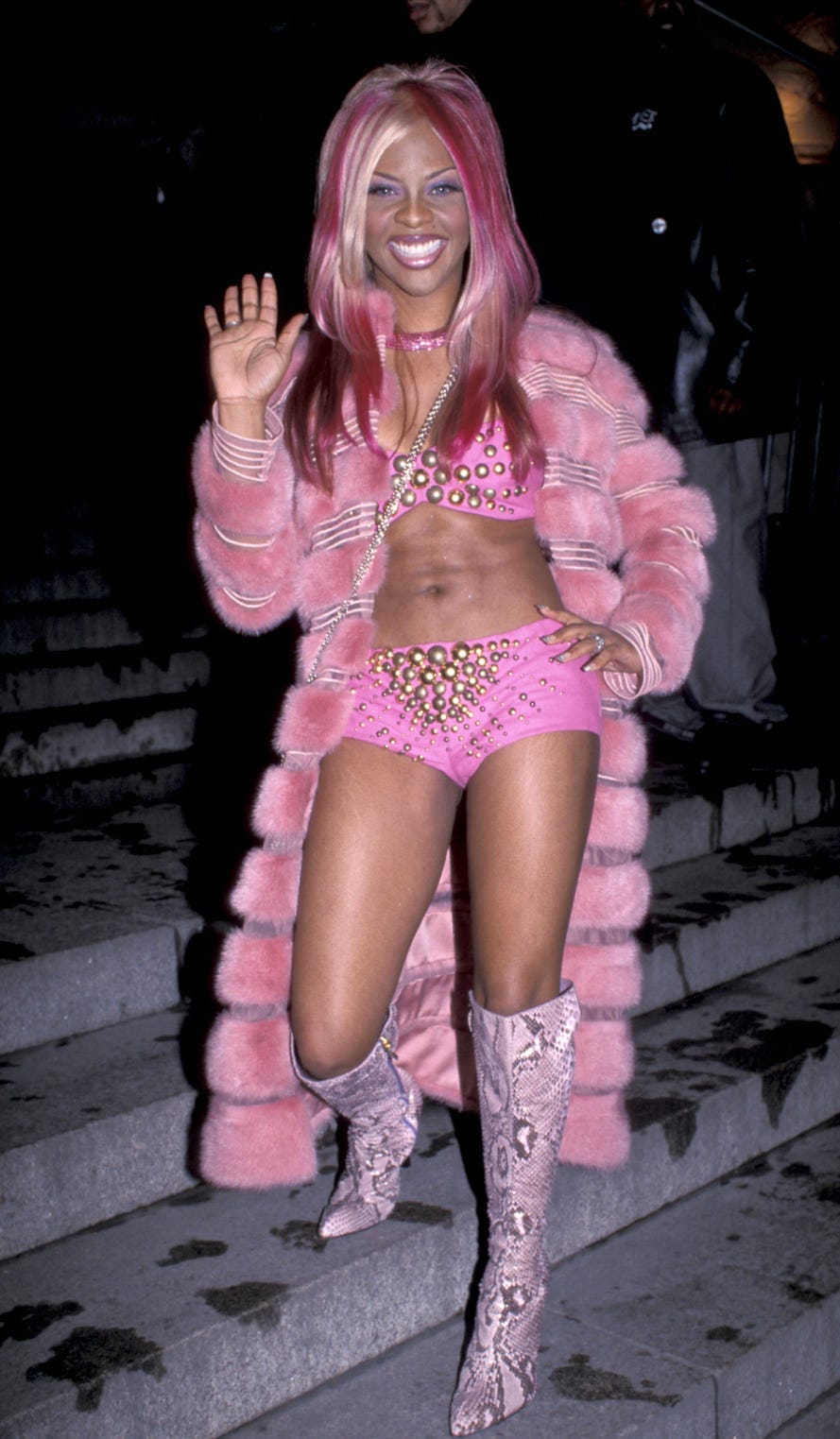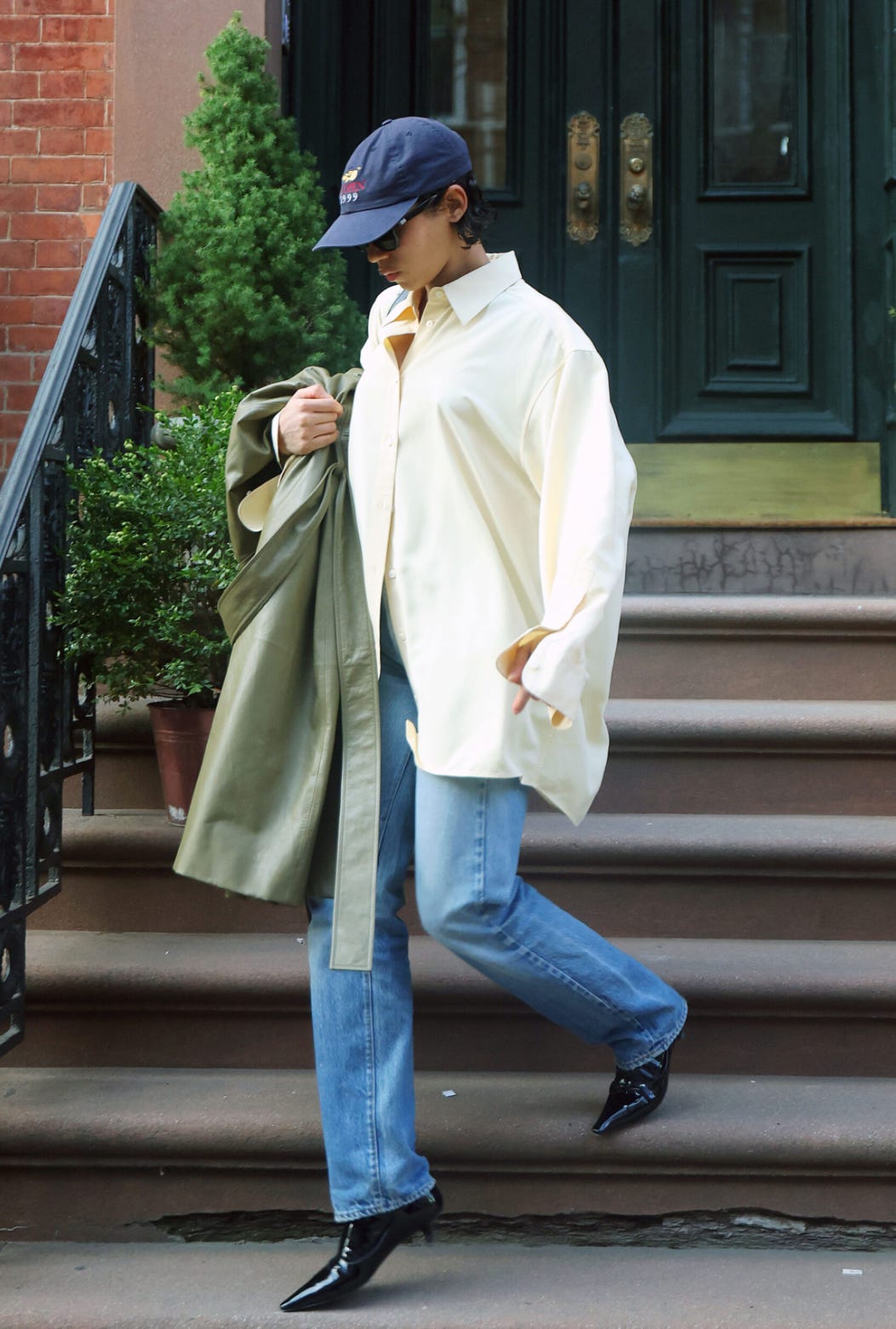So, I wrote this months ago, however, the publication I used to work for went through some changes and a lot of my work no longer exists on their website(: Don’t you love when that happens(:
Anyway, this is one of the pieces that I still have and that still holds some kind of relevancy, so I thought I’d re-home it, because I think it’s interesting to see how this conversation is constantly evolving and gathering new meanings and explanations.
Speaking of which, here are a few other personal style perspective’s that I enjoyed reading/watching:
the death of personal style by Mina Le
Personal style is trapped in the algorithms echo chamber by Madeleine Shulz (this is where Alexandra Hildreth’s quote, “You can tell someone’s screen time from their outfit,” that’s been making rounds recently, is from)
Also, Alexandra followed up with this TikTok which is delish
my outfit is my elevator pitch by Emily North
"Style is a way of saying who you are without having to speak." – Susan Sontag
In an era where everything is available at our fingertips, it might be rattling to realize that you can’t accomplish the simple task of getting dressed without looking to a reference point first. Where once personal style was something that slowly developed over time, it is now something many feel can fully form overnight. After all, isn’t knowing which influencers and Pinterest boards you feel compelled to copy and paste onto yourself not the same thing as knowing what your personal style is? Can’t your “aesthetic'' be “eclectic grandpa” without the actual patina that comes with years of being an eclectic grandpa?
The truth is, figuring out your personal style can take years, decades even, and is in large part out of your control. This might sound like a counterintuitive thought given that personal style is… personal, and so of course you should be fully in control and aware of something that is yours, but it’s a catch-22. Personal style is shaped by all your lived experiences. Yes, it can be the shirt you put on, but it’s also the books you read, the way you hold a newspaper, the way you get out of a car, the music that makes you want to dance, the way you look at someone. If you considered all the people whose personal style is regularly imitated, you’d notice that the reason it works for them is because it comes naturally, or at least we feel that it does. Once copied head to toe, it loses that same effect it first had, because a piece of the puzzle is missing— a life lived. Other times, the people you’re imitating have developed a very precise persona that they themselves might not even consider their personal style; what you’re actually copying is the way they dress.
We can apply Pierre Bourdieu’s concept of “cultural capital” to this as well, in that your taste and personal style is often reflected and reinforced by social hierarchies. Therefore, your personal style can inform people of your social and cultural standing. It is also the reason people of different classes do not react the same way to different social signifiers. Do you even understand why you want to wear what you want to wear? Even years after you’ve moved out of your middle-class home in the suburbs of Massachusetts, where you regularly visited an antique store owned by your grandmother who loved to bake sugar cookies infused with lavender, that is all still impacting your personal style and taste.
Many of us have a need to fit in, but also a desire to stand out, and personal style should be more of an internal search than an external one. If you lived in a vacuum never being influenced by anyone or anything else, style in reference to the way you got dressed would not exist. There would be no reason to perform. If you do not begin with yourself and the ways in which you express yourself and communicate as a human being, there is no style, and there is no one to communicate with. It makes you think about how much of our choices are actually fully our own. You did not fall out of a coconut tree, etc. Once you start to develop your sense of self, the rest starts to come more smoothly. You start to notice the things that speak to you, and instead of just knowing what you like, you know why you like it. It then becomes easy to realize that you don’t need to recreate an outfit from head to toe, because you know how to take those elements and translate them into things you already have at your fingertips. You can acknowledge something new in the trend cycle and know if it’s right for you to try out.
(From what I remember this next bit was written after seeing Diesel’s Fall 2024 collection) Consider the idea of fashion as spectacle. With the online space as it is now, we are constantly watching people, and think we have a front row seat to their lives, even when what they are sharing with us is curated. When we don’t know what to wear, we look to images online. Guy Debord’s Society of the Spectacle talks about how in capitalist societies, our lives are dominated by images, and so in fashion we see this image driven narrative making people more focused on consuming images online, rather than actually living their actual lives. Debord says, “The spectacle is an affirmation of appearance and an identification of all human social life with appearances.” Simulations and images have replaced what was once real, and our online lives are becoming more real than our lived experiences. We start to care more about the perception of clothing than the actual garments themselves.
You can figure out what inspires you, what parts of your body you enjoy highlighting, what colors bring you joy, and that more literally speaks to your personal style, yes, but it is a lot more complex than just that. It’s your individual identity and the ways in which it interacts with social dynamics and cultural capital. Developing your personal style requires discovery and being curious. It’s ever evolving while also being all that you are at any given moment. Although capitalism or the upper class might have you believing otherwise, there is no one, correct way to have personal style or way to develop it, because, the final ingredient will always be you.
With all that being said, just live your life.














